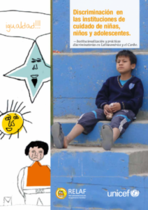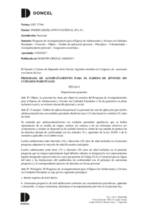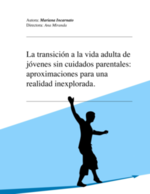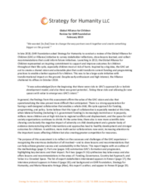Discriminación en las instituciones de cuidado de niñas, niños y adolescentes
El presente informe refleja distintos aspectos del fenómeno de discriminación que sufren las niñas, niños y adolescentes sin cuidado parental que residen en instituciones de América Latina y el Caribe.






